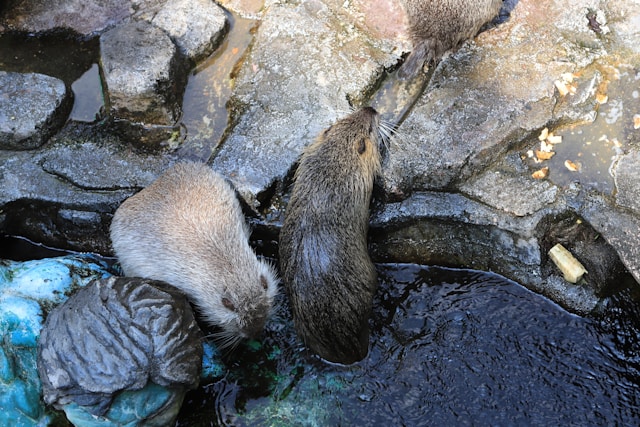Nene Wetlands Nature Reserve prepares for the reintroduction of beavers, aiming to boost biodiversity and manage the ecosystem naturally
In a significant ecological milestone, beavers are set to return to Northamptonshire after being absent for 400 years. The Wildlife Trust, in partnership with Anglian Water, is leading a project to reintroduce these “nature’s engineers” to the Nene Wetlands nature reserve near Rushden. This initiative, costing £180,000, involves creating a suitable wetland habitat to house a family of beavers within a new enclosure at Delta Pit.
Matt Johnson, the conservation manager for the Wildlife Trust in Northamptonshire, highlighted the importance of this reintroduction, stating that beavers will naturally manage the wetland area, which is prone to excessive moisture. Their dam-building activities are expected to enhance the local ecosystem by creating diverse habitats that support various species. “We’re providing bed and board, and they’re providing the labour,” Johnson quipped, underscoring the mutual benefits of the project.
Embed from Getty ImagesBen Casey, the Nene Valley projects officer, emphasized the need to contain the beavers within the enclosure, as required by Natural England and the Beaver Trust. This measure aims to prevent unintended impacts on nearby agricultural land and to ensure that the beavers’ activities are closely monitored. Casey expressed hope that, in the future, beavers could roam freely across the country, contributing to environmental management on a broader scale.
The reintroduction has generated interest due to the enclosure’s proximity to a popular shopping centre, raising questions about potential human-beaver interactions. While Casey acknowledged that most beaver behaviour is predictable, he humorously noted that beavers are known to test boundaries. As a precaution, the enclosure features metal fence posts and other measures to prevent the beavers from escaping.
Under the terms of their license, the Wildlife Trust must monitor the beavers for the next five years to ensure they adapt well to their new environment. The project aims to transform the wetland into a vibrant habitat, benefiting a wide range of species and showcasing the ecological benefits of reintroducing native wildlife.
Analysis:
Political:
The reintroduction of beavers into Northamptonshire touches on broader environmental policy debates in the UK. The government and conservation bodies like Natural England are increasingly supporting initiatives that restore native species and manage ecosystems naturally. This project aligns with national efforts to promote biodiversity and sustainable land management. However, it also raises questions about regulatory oversight and the balance between conservation goals and agricultural interests.
Social:
Socially, the beaver reintroduction reflects a growing public interest in wildlife conservation and sustainable practices. The project has sparked curiosity and excitement among local communities, particularly given its location near a busy shopping area. This initiative also highlights the role of public education in fostering an understanding of ecological processes and the importance of preserving native species.
Racial:
While the reintroduction of beavers does not directly relate to racial issues, it can indirectly contribute to discussions on environmental justice. The project underscores the need for inclusive conservation practices that consider the diverse needs and perspectives of different communities. Ensuring equitable access to natural spaces and educational opportunities about wildlife conservation can help bridge gaps in understanding and participation.
Gender:
Gender dynamics in conservation are an emerging area of interest, particularly in the context of leadership and decision-making roles. This project offers an opportunity to highlight the contributions of female conservationists and to promote gender equity in the field. By showcasing diverse voices and expertise, conservation efforts can become more inclusive and representative.
Economical:
Economically, the beaver reintroduction project represents a significant investment in local conservation efforts. While the upfront costs are considerable, the long-term benefits include enhanced ecosystem services, such as improved water quality and flood management. The presence of beavers can also boost eco-tourism, attracting visitors interested in observing these charismatic animals and learning about their role in the environment. Additionally, the project can serve as a model for similar initiatives elsewhere, demonstrating the economic viability of conservation as a strategy for regional development.
